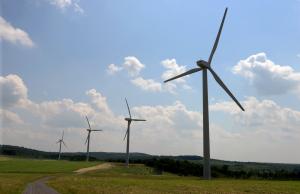WASHINGTON, Aug. 2 (UPI) — The net share of renewable and nuclear energy on the North American grid could rise by another 7 percent by the middle of the next decade, U.S. data show.
A trilateral agreement signed in June by the Canadian, Mexican and U.S. governments envisioned a goal of getting 50 percent of the electricity generated in North America from clean-energy resources by 2025.
Assuming North American energy policies remain static, an assessment from the U.S. Energy Information Administration finds North America will fall short of that goal by about 5 percent.
In Canada, the EIA said clean-energy resources made up about 80 percent of power generation last year thanks in part to a robust hydroelectric sector.
“However, the combined share of renewables and nuclear in Canada’s total generation is expected to fall to 75 percent by 2025 because of increases in natural gas use and projected retirements of existing nuclear capacity” the EIA assessment read.
After the trilateral agreement, Canadian Prime Minister Justin Trudeau met separately with his Mexican counterpart, Enrique Pena Nieto. In a joint statement, both sides vowed to share best practices and review how best to enhance engagement in the energy sector, including low-carbon options.
The announcement followed an award for TransCanada to build the $2.1 billion Sur de-Texas-Tuxpan natural gas pipeline in Mexico, backed by a 25-year service contract with the Comision Federal de Electricidad, Mexico’s state-owned power company.
Mexico, meanwhile, is expected to see an increase in the renewable power sector as it starts to rely less on fossil fuels for electricity generation. By 2025, EIA said Mexico uses nuclear and renewable energy resources for 29 percent of its power.
The EIA said that, if federal clean energy plans remain in place, the increase in renewable energy in the United States will be “large.” In an election year, Republican candidate Donald Trump has moved more in favor of fossil fuels, while Democrat Hillary Clinton has leaned more toward low-carbon initiatives.
The EIA’s assessment was based solely on electricity generation from nuclear and renewable sources as a share of total generation.

COMMENTS
Please let us know if you're having issues with commenting.